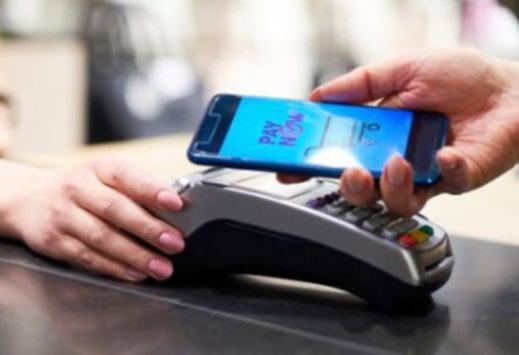Best Free Resources for Traders in 2025: From Charts to AI Alerts
December 01 , 2025

Explore how fintech innovations, digital payments, and the rise of the cashless economy are transforming banking, business, and everyday life worldwide.
Money is changing. The rise of fintech (financial technology) has transformed how people save, spend, and invest. From mobile wallets to cryptocurrency, from contactless payments to digital banking, we are entering an era where cash is no longer king. The cashless economy is growing rapidly, reshaping global markets, consumer habits, and even government policies.
In this article, we explore the latest trends in fintech, the future of digital payments, and what a world without cash might mean for businesses and consumers alike.
Fintech refers to innovative technology designed to improve and automate financial services. It encompasses everything from online banking apps and peer-to-peer payment platforms to robo-advisors and blockchain systems. In 2025, fintech is not just a buzzword—it’s a driving force behind economic modernization.
Major players like PayPal, Square, Stripe, and Apple Pay have redefined how consumers interact with money. At the same time, startups worldwide are competing to provide faster, safer, and smarter payment solutions. This competition is fueling unprecedented growth in the financial sector.
Digital payments have become the backbone of modern transactions. Whether it’s tapping a phone to buy coffee, scanning a QR code to pay rent, or sending money internationally with just a few clicks, digital payments offer convenience and speed.
In developing countries, digital wallets such as M-Pesa in Kenya and Paytm in India have revolutionized financial inclusion by giving millions access to financial services for the first time. In developed markets, platforms like Venmo, Zelle, and Revolut dominate the peer-to-peer payment space.
Consumers are moving away from cash for several reasons:
A cashless economy is one where financial transactions are conducted primarily through digital means, rather than physical currency. In such economies, debit cards, credit cards, mobile apps, and even cryptocurrencies dominate.
Countries like Sweden and South Korea are leading the way, with over 90% of transactions already cashless. Meanwhile, China has rapidly shifted toward mobile payment platforms like Alipay and WeChat Pay. These examples highlight how societies can operate almost entirely without cash.
The transition to digital transactions brings numerous advantages for individuals, businesses, and governments:
Cashless payments reduce transaction times, making shopping and commerce faster and more convenient.
Less cash circulation means fewer opportunities for theft, robbery, and money laundering.
Mobile banking apps give unbanked populations access to financial services, empowering millions worldwide.
Digital records make it harder to evade taxes, helping governments increase transparency and revenue collection.
Despite its benefits, the cashless economy also poses challenges:
Not everyone has access to smartphones or reliable internet. In rural and low-income areas, cash remains essential.
Every digital payment leaves a trail. While this improves accountability, it also raises concerns about surveillance and data privacy.
As payments go digital, hackers target financial systems. Cyberattacks, data breaches, and identity theft are major threats in the fintech landscape.
In a fully cashless society, power outages, system failures, or technical glitches could disrupt entire economies.
Fintech is not just replacing cash—it’s reinventing how we interact with money. Here are some innovations shaping the future:
Bitcoin, Ethereum, and other cryptocurrencies are changing how value is stored and transferred. Central banks are also exploring Central Bank Digital Currencies (CBDCs) to modernize national currencies.
Fingerprint scans, facial recognition, and voice authentication are making payments more secure and seamless.
AI-driven tools detect fraud, personalize financial services, and optimize credit scoring for individuals and businesses.
Platforms like Klarna and Afterpay are revolutionizing consumer finance by allowing flexible, interest-free payments.
Open banking allows customers to share financial data securely with third-party apps, creating personalized and competitive financial services.
Governments worldwide are adapting to the fintech revolution. Regulations are being updated to ensure consumer protection, data security, and fair competition. For example, the European Union’s PSD2 directive promotes open banking, while India’s Unified Payments Interface (UPI) has become a global model for fast, secure, and inclusive payments.
At the same time, governments face challenges in balancing innovation with stability. Overregulation can stifle growth, while under-regulation can expose consumers to fraud and scams.
Traditional banks are no longer the sole gatekeepers of financial services. Digital-only banks, also called “neobanks,” are disrupting the industry with app-based accounts, lower fees, and user-friendly platforms. Consumers now expect 24/7 access, real-time transfers, and innovative features that legacy banks struggle to match.
To stay competitive, many traditional banks are partnering with fintech companies or investing in their own digital transformation projects.
The adoption of digital payments varies worldwide. In developed economies, card-based payments and mobile wallets dominate. In emerging markets, mobile-first solutions are leapfrogging traditional banking infrastructure.
For instance:
Looking ahead, the cashless economy will continue to grow. Physical currency will likely still exist, but its role will diminish as digital transactions dominate. Hybrid models combining traditional cash with fintech innovations will allow smoother transitions, especially in developing regions.
By 2030, experts predict that most developed nations could be nearly cashless, with digital wallets, biometric authentication, and blockchain systems powering financial ecosystems.
Fintech, digital payments, and the cashless economy are not just trends—they are revolutions. They are reshaping how individuals, businesses, and governments handle money. While challenges like cybersecurity, privacy, and inclusivity remain, the benefits of efficiency, convenience, and innovation are undeniable.
The future of money is digital, and the cashless economy is no longer a possibility—it’s an unfolding reality.
#Fintech2025 #DigitalPayments #CashlessEconomy #FutureOfBanking #FinancialTechnology #CryptoAndFinance #GlobalFintech #CashlessFuture